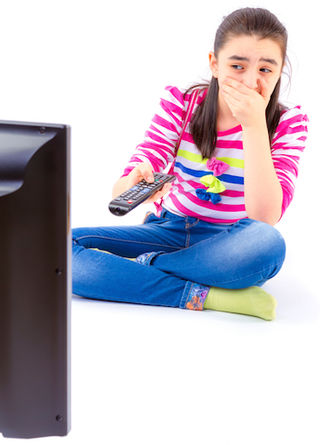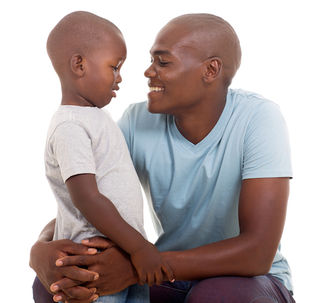Media
How to Talk to Kids about Mass Shootings and Attacks
Reassure while managing news exposure
Posted July 19, 2016

With frequent stories about horrific mass killings occurring in the US and around the world, many parents wisely worry about how news of these tragedies will affect their children. As Ellen Sturm Niz of Parents.com wrote in her excellent article about talking to kids about terrorism, many kids are asking poignant questions like, "Why do people want to hurt us?"
When it comes to talking to kids about these events, we’ve heard some parents say, “Kids need to know how life is, and hiding the truth won’t do them any good,” but this is only partially true; research clearly shows that how and when kids learn about violent tragedies greatly impacts their psychological health and behavior.
First, kids age eight and younger have difficulty telling if what they hear and see on screens is fantasy or reality, and this ability develops gradually with age. So young children can find even entertainment violence to be much more frightening and anxiety provoking than adults, believing it is happening to real people. That’s why experts recommend that children under age eight not view media containing any type of violence.
Regarding real life violence, we think many adults would agree they found it disturbing to watch coverage of mass shootings like the ones in Paris, Orlando Pulse, and Dallas, and the recent massacre using a truck to roll over hundreds of people in Nice, France. Well, the more realistic violence is portrayed, as in the case of news coverage of actual events, the more damaging it can be to youth whose brains and life experiences haven’t yet prepared them to cope with these realities like adults can.
Media coverage of violent tragedies can be very psychologically damaging even after age eight, especially with graphic or repetitive exposure where kids can virtually relive the event over and over. Thus, young frequent viewers of explicit violence such as tragedy news coverage can develop long-term fear, anxiety, depression, anger, and even PTSD, and have higher rates of substance use according to studies.
That’s why many experts recommend no news viewing until age 11 or so, and after that age, minimized viewing together with adults who reassure them and help them process information from a calm, accurate, adult perspective.

But even young kids may hear about events from other people, so after a tragedy, ask kids around age four and older if they’ve heard about something bad happening. If the answer is yes, ask what they know about an event so you can correct any misperceptions (for example, they may think it’s still happening when it’s over, or think that it happened near you when it didn’t, or that people you know were hurt but weren’t, or that they or their family will get hurt next when you will be safe).
When you discuss events, or view news coverage when your kids are old enough, here’s what you want to try to do:
- The most important thing is to reassure them that you will take care of them and keep them safe, and that there are many more good people in the world than bad. For older kids, you could say, “There have always been tragedies that people cope with by having faith, talking, and helping others.” Reassure them that shootings and attacks are very unlikely to happen to them, their friends, or family.
- Ask how they feel about the event and validate their feelings, “It’s OK to be scared and sad, and I feel that way too. But I know we’ll be okay.” Don’t emphasize your own fears you may have, because kids look to us for reassurance and calmness.
- Emphasize the help and sympathy from strangers who care about victims and that people are working hard to keep things like this from happening again. Talk about how your family can help such as by donating money or time, or sending letters to victims’ families or communities.
- Ask if they have any questions (it’s okay not to have all the answers) and say you’d like to talk again whenever they want. Say it’s good to talk about concerns but there’s a point where it’s better to get away from the topic—when it doesn’t help but just makes us sad, worried, or angry.
After that, only talk about events when kids want to or express concerns.
Teens with internet and smart phones can overexpose themselves, so share why it’s best for all of us to minimize viewing: because watching more coverage doesn’t help anyone but can harm our mood, sleep, performance, behavior, and psychological mindset.
Kids will learn about bad people, situations, and events as they grow up. But we can protect their psychological and behavioral health by minimizing their exposures until their brains mature enough to cope with the information in healthy ways.
We believe that tech devices bringing footage of violent tragedies into our homes, cars, schools, restaurants, workplaces, and elsewhere, which can be watched over and over, is a new, potentially dangerous experiential phenomenon for young minds. Unplug the family and do fun, simple activities together or watch funny, uplifting, prosocial media instead. I Love Lucy reruns anyone?


